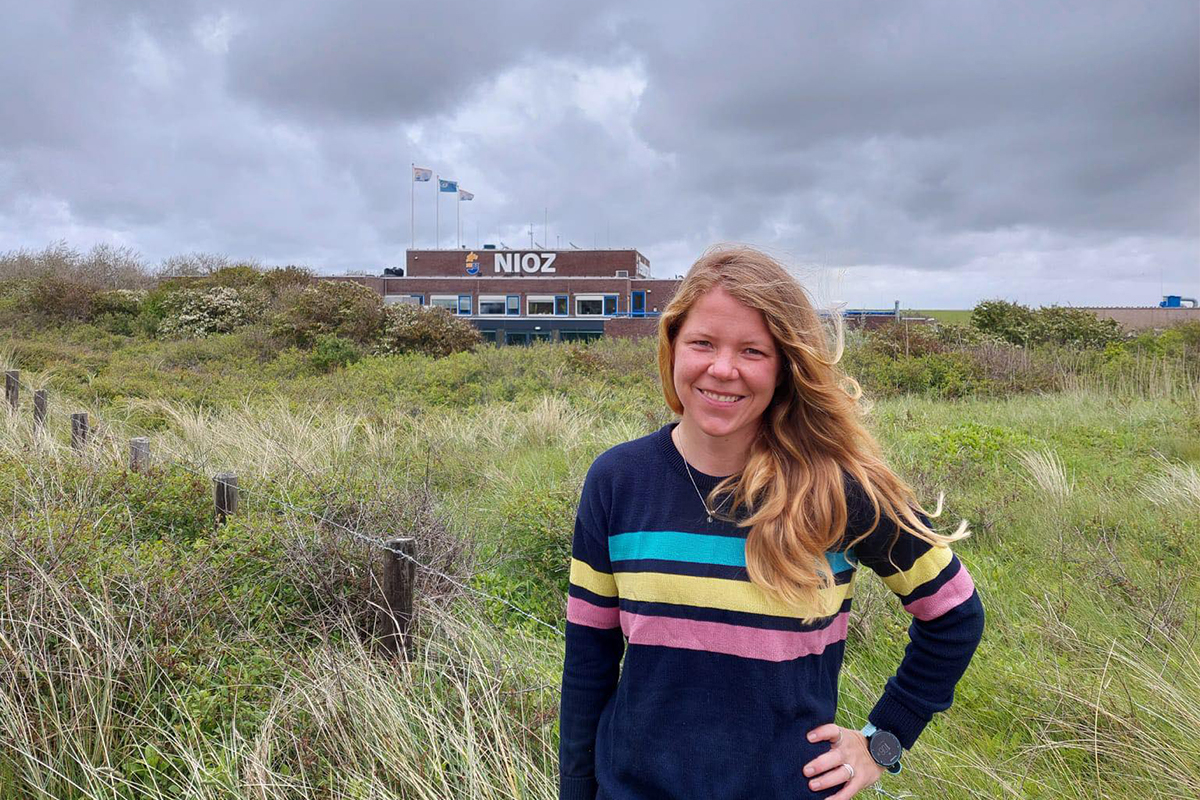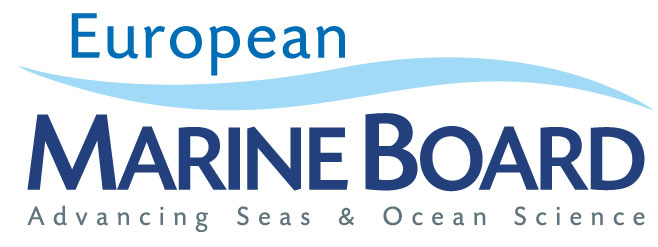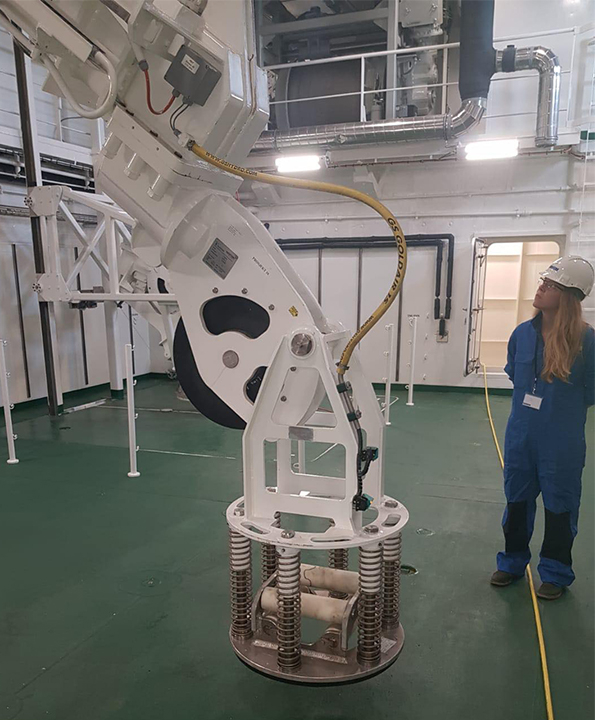EMB Young Ambassador Rebecca Zitoun wants to engage the new generation of marine scientists

With 35 member institutions in 18 different countries, the European Marine Board (EMB) plays a role of interest in European policymaking. “International questions on for example underwater noise and coastal resilience are treated on a European level. Being the leading European think-tank in marine science policy, the EMB provides valuable advice to Brussels”, says Rebecca Zitoun, Postdoctoral researcher at the Royal NIOZ Netherlands Institute of Sea Research. In April 2021, she was chosen to be one of the two new EMB Young Ambassadors for a two-year period. “I was named together with Anjali Gopakumar, a PhD candidate from the University of Bologna, Italy, this Spring.”
Trace metals influencing ocean life
Originally from Germany, marine biogeochemist Rebecca Zitoun completed her PhD at the University of Otago in New Zealand. ”I work in ecotoxicology and biogeochemistry, studying the presence and effects of trace metals, especially copper, in aquacultures, hydrothermal environments, on the marine environment around shipwrecks, and in various other marine systems. Mussel aquaculture in particular is a very applicable and important topic in New Zealand.”
In February 2020, Zitoun started at NIOZ. “I joined a project of Rob Middag on trace metals - especially iron - in the North Atlantic and how they affect phytoplankton, the microscopic algae that form the base of the marine food web.”
However, the year developed different from what she had expected. “At NIOZ, I was originally supposed to work on relatively new methods and analysis techniques based on samples that we planned to collect last year on board of the Research Vessel Pelagia. Unfortunately, the cruise was postponed until this July owing to Covid. So, although that was a pity and I could not work in the lab, I spent a lot of time doing other interesting things to improve some of my soft and key professional skills. I was quite busy doing outreach, organizing conferences, writing papers, and building partnerships all over the world in various sectors. When I saw the call from EMB saying that they were looking for new young ambassadors, I decided to apply for this role.”
“Missing out on huge potential”
Perhaps Zitoun was chosen for her firm statements. “I told them that nobody of my generation knows about EMB. That has to change, because we are missing out on huge potential. Young researchers are the ones in the lab, publishing papers and bringing new and fresh ideas to the table. The success of the Ocean Decade that started this year, relies on the inclusion of these early career ocean professionals. They have to become aware of the fact that they can engage, that their voice is heard and valuable and that they can start helping out and being involved very early on. You don’t have to be a mid- or late career scientist to drive change.”
Young minds needed to create a sustainable ocean
Zitoun aims to get her fellow Early Career Ocean Professionals (ECOPs) involved by offering them practical support, even in corona times. “My plan is to organise online networking events for young professionals, hopefully already starting by the end of this year. Next to that, I want to give a workshop on how to communicate science better to non-scientific stakeholders. I will also write two blogs a year for ECOPs, which will be published by EMB. The first blog will be on scientific failure. We all fail sometimes, but we can be more positive about it and learn from our mistakes. It comes with the job of being a scientist. If we want to create a sustainable ocean by 2030 we need young minds to innovate, explore, and have daring projects.”
She is also convinced that public outreach is important for a strong position of marine science in European society. “People in Southern and Northern European countries see the ocean very differently. For good and sustainable ocean management, citizens throughout Europe will have to cooperate, communicate, and be willing to listen to each other.”

